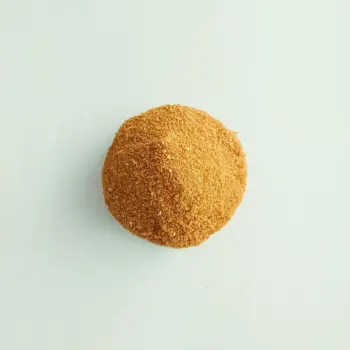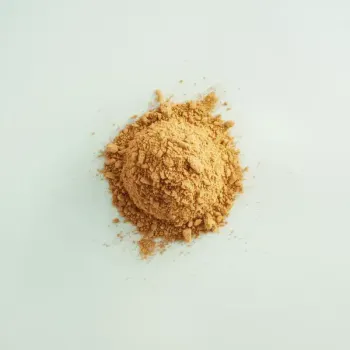Asafoetida and onion powder are spices used for flavoring in cooking. Asafoetida is a pungent resin with a savory taste, while onion powder offers a sweet, umami flavor. They differ in intensity and are used in various dishes, from lentils to meats.

Asafoetida, also known as hing, is a resin derived from ferula plants. It's commonly used in Indian and Middle Eastern cuisines, releasing a savory, onion-like flavor when heated in oil.

Onion powder is made from dehydrated, ground onions, offering a concentrated flavor that's sweet and umami-rich. It's a versatile seasoning used widely in American and global cuisines.
Asafoetida has a strong, sulfurous odor that mellows into a garlic-onion flavor when cooked, while onion powder has a consistent, gentle sweetness. Asafoetida is typically used in minute quantities, whereas onion powder can be used more liberally.

Your ultimate Recipe Box, Meal Planner, and Cooking Class all in one
Ideal in dals and stews, asafoetida complements lentils by adding depth and reducing flatulence. Use a pinch at the start of cooking for a savory base. Use onion powder in lentil soups and loaves for a sweet onion flavor without the texture of fresh onions. Add mid-cooking to preserve its taste.
Excellent in stir-fries and pickles, asafoetida enhances the natural flavors of vegetables. Fry it briefly in oil to unlock its full potential. Sprinkle onion powder on roasted or grilled vegetables for an instant flavor boost. It blends well with other herbs and spices.
For meat marinades and curries, a pinch of asafoetida can be a game-changer, giving a savory umami flavor that enhances the meat's natural taste. Onion powder is great for dry rubs, meatloaf, and burgers, providing a uniform onion flavor throughout the dish without moisture.
Asafoetida and onion powder have negligible nutritional differences when used in the small quantities typical for seasoning.
| Nutrient | Asafoetida ( per Teaspoon ) | Onion Powder ( per Teaspoon ) |
|---|---|---|
| Fat | Negligible | 0.02g |
| Fiber | Negligible | 0.3g |
| Sodium | Negligible | 1mg |
| Protein | Negligible | 0.24g |
| Calories | Negligible | 8 |
| Carbohydrates | Negligible | 1.94g |
Asafoetida can replace onion powder for a different flavor profile, but due to its strength, use it sparingly.
Yes, asafoetida is much stronger than onion powder and should be used in smaller quantities.
Yes, onion powder can be used as a substitute for asafoetida for a milder flavor.
Store both spices in airtight containers, away from light and heat to preserve their flavors.
Traditional Indian recipes that rely on the specific flavor of asafoetida, like certain dals or pickles, may not have the same authentic taste with onion powder.